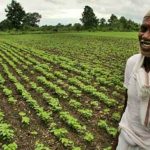 For sometime, the enterprise social media industry lauded the future of business as being one where employees would readily share knowledge and insights via a suite of digital social networks that sat behind the corporate firewall.
For sometime, the enterprise social media industry lauded the future of business as being one where employees would readily share knowledge and insights via a suite of digital social networks that sat behind the corporate firewall.
Whilst this idyllic future has probably not materialized, such tools have at least found some uses, even if sometimes these are in unexpected places. For instance, the ClimaAdapt project in rural India highlights how farmers are using digital tools to share their wisdom about local conditions.
Harsh environs
Farming in countries such as India is often a precarious business, with extreme weather conditions posing a significant threat to the harvest. As such, it’s often critical to get hold of the right information at the right time.
The ClimaAdapt project aimed to tackle this by increasing the adaptive capabilities of the farmers. The project allows the 25,000 or so farmers in the areas covered by the study to access knowledge on farming and climate conditions from a network of eight Village Knowledge Centres (VKCs) that had been set up during the project.
There is also a network of 75,000 farmers that are connected via a digital peer-to-peer network. The project was born as more traditional means of knowledge transfer were proving ineffective.
“It was not a demand driven system, and did not address the specific problems of the farmers and the local challenges. Government agencies had a monopoly over the AE services, and the science was developed in laboratories and controlled conditions and the results were taken to farmers. Consequently, the adoption and the impact of the scientific results and technologies were not very effective,” the team say.
Timely information
Another challenge with the more top down initiatives is that they struggled to provide the kind of timely information that farmers craved.
“It is important that farmers get information that is correct and timely. The information provided was not always relevant or complete, it was delayed or smallholder farmers could not take advantage of it due to lack of resources,” they continue.
So, the use of digital solutions seemed to be a good option to explore as it can deliver the information more cheaply and faster. With even the remotest villages tending to have mobile services, this opened up this possibility, with several text messages per day sent out to farmers in the system with things like market or weather related information.
The system has thus far been a crucial way for both farmers to engage with each other, but also to receive information from scientists and government agencies. There are currently several thousand farmers connected to each knowledge hub, with plans for this to grow. It’s especially pleasing that the networks contain those, such as women, who are often ignored by traditional approaches.
“Traditionally, women are busy in the household and have not been able to meet extension workers. Also, these extension workers were most often men. Now, VKCs are there all the time and women are also working in the centres. This means that women are included in a different way,” the team say.
Expanding the range
What’s more, now that the VKCs have established a rapport with their local communities, there is the prospect of expanding the information they offer to other topics, whether that’s health messages or social services information.
Eventually, the team hope that the host villages will eventually take ownership of each center and manage them themselves.
“We need to ensure that it is sustainable when we leave, and VKCs services can be continued. Village youth that have completed school are now being trained to maintain the centres. They also get paid for their time. But we are also working with Government and the private sector so that the VKC model from ClimaAdapt can be shared and scaled up. In addition, there are companies looking at the ideas and putting them into farmer owned business models, as there is will to pay for the information. However, ensuring sustainability of VKCs is still a challenge,” they conclude.